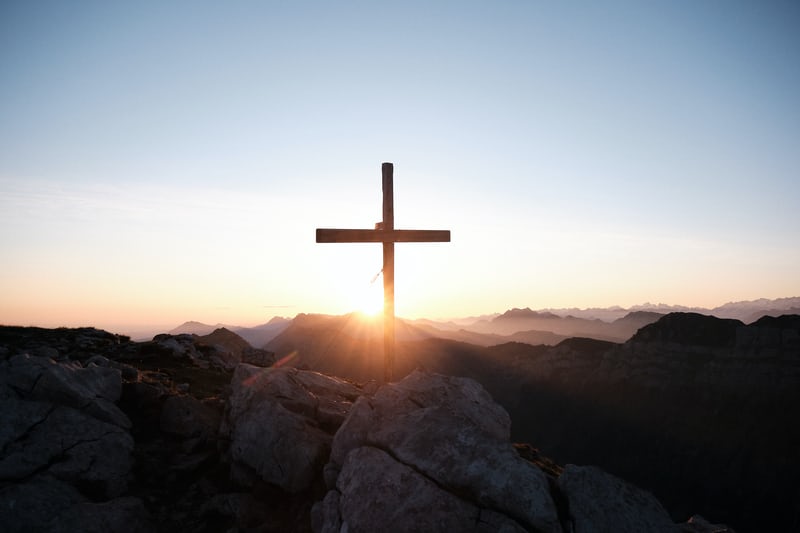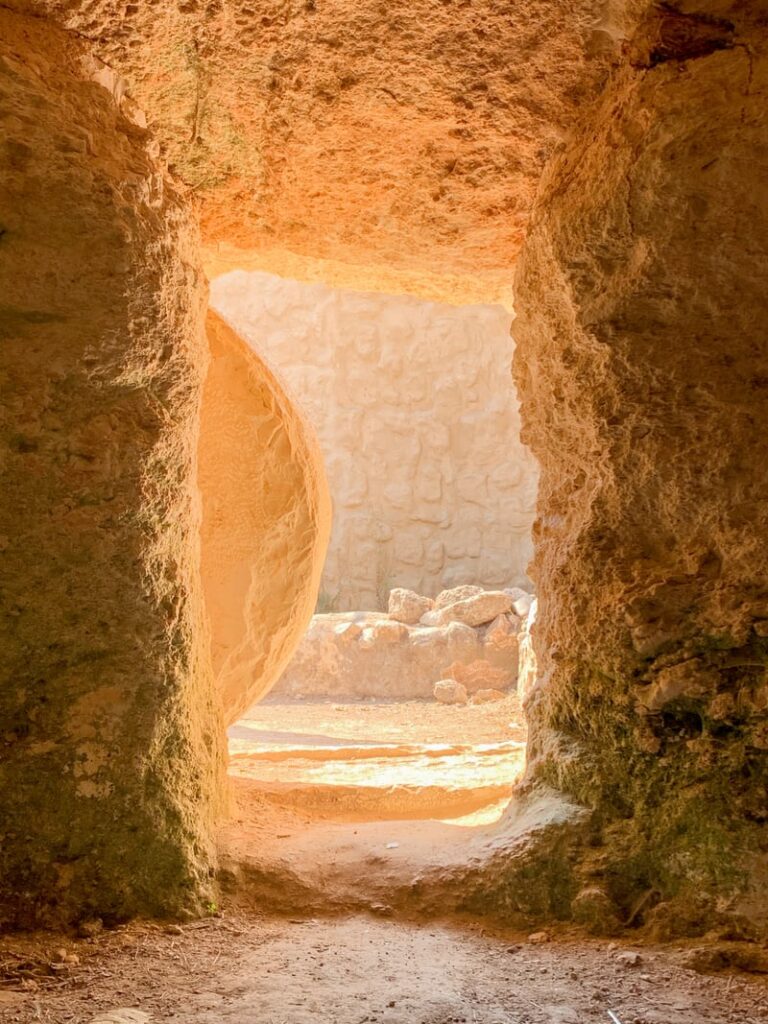
For the first time ever, Randy and I attended our church’s Saturday evening Easter celebration, rather than our traditional Sunday morning. We wanted to take my mom, and at 89, she just doesn’t have the energy to get moving early in the morning. Our pastor spoke about one of my mom’s favorite passages in Scripture found in Luke 24 about the men on the road to Emmaus, and in fact, she has a picture of those men on that road hanging in her living room, one she has loved for years. Pastor talked about those men, and how discouraged and defeated they must have felt as they started explaining to Jesus (whom they were kept from recognizing) about all that had just happened to the prophet Jesus, in whom they had placed great hope.

These men, (only one is named), were obviously Jewish followers of Jesus. They had hoped that Jesus would rescue Israel from her oppressors, the Romans. But when their chief priests and Romans had Jesus crucified, Jesus’ followers suffered a crushing blow. Where was their hope now? He was lying in a borrowed tomb, while they were supposed to be remembering their nation’s Passover. Suddenly, the greatest hopes they’d had in a Messiah were dashed. Can you imagine how they must have felt? Have you ever had high hopes for something or in someone and had them fail you, ruining your expectations?
Then suddenly they heard rumors, but they have only come from some women, and what man really takes a woman seriously? Perhaps they allowed the slightest flicker of hope to surface from these rumors, but I think they were more confused than anything else. So they discussed all that had happened as they walked seven miles from Jerusalem.
A traveler came upon them as they walked and talked, and he asked them what they are discussing? They seem totally shocked, and reply, “Are you the only visitor to Jerusalem who does not know the things that have happened there in these days?”
Our pastor mentioned Jesus’ sense of humor in the next question. (Can’t you just hear it in his tone?) “What things?”

So Jesus listened as they explained to Jesus all the things that had happened to him. I imagine if you were a celebrity, but weren’t often seen in public, and something amazing or scandalous had happened to you, you might come upon people talking about you. They might even tell you about yourself, not realizing who you are. This is exactly what happened to Jesus here.
Then after patiently listening to them, he asks them, “Was it not necessary that the Christ should suffer these things and enter into his glory?” Our pastor suggested, it was like Jesus was saying to them, “Have you never read Isaiah?” That prophet spoke many words about the Messiah’s sufferings. But these men missed that part, caught up as they were in the miracles and the hope for physical redemption from their Roman oppressors.
But Jesus came to earth as a human baby to give Israel and all of the Gentile nations (even the Romans) a chance first for spiritual redemption. Physical redemption would come later. But not then. Easter, which is really our name for the fulfillment of Passover, had to come first. A perfect Passover lamb had to come, and his blood had to cover the lintels of our hearts so that His Father could “pass over” our sins and allow us eternal life with Him.
This past Wednesday, I went with my son to a Passover Seder meal at his church. The Seder was put on by a Messianic Jewish congregation, and throughout this very meaningful time of worship, I saw the Passover in a fresh new way. Though I knew the symbols and what they meant to Israel after the Exodus from Egypt, I was able to grasp some of the smaller details of how Jesus fulfilled each one of those symbols by his first coming. Even the broken matzah bread that is hidden away for the children to find, represents the broken body of Jesus on the cross. There are three pieces of matzah, and scholars differ on what they symbolize, but only the explanation of one as the Father, one as the Son, and third as the Holy Spirit makes sense, because only the middle one, the Son’s body, was broken for us on the cross. (Some suggest they represent Abraham, Isaac, and Jacob, but Isaac was not broken for us. He was a type of Christ, whose body was laid on an altar, but he did not spill his blood as Jesus did on our behalf.)
So why do we celebrate Easter, and why was it necessary? To fulfill what God had promised would come to pass. To send His Messiah to suffer so we don’t have to suffer eternal separation from Him. To reconcile what was lost in Eden, to bring us to God through His body on the tree. To forgive us our sins, and we don’t need anyone to show each one of us the depths of our own brokenness.

But perhaps we are like the men on the road to Emmaus, still discussing these things, thinking Jesus was a good man or a great prophet, or even a son of God. We may talk to His Father, God, in prayer, but perhaps we have not yet met His Son, Jesus.
Jesus said that he came to give us abundant life, everlasting life, and that that life is in Him. He came at a time when the world was ripe for a Messiah. But many of them didn’t see that their Messiah came first with a spiritual message. He will come again with a physical one, to destroy the evil that will not bow to him now.
But at this time, we still celebrate Easter, Resurrection Sunday, Passover’s fulfillment, and Jesus still beckons us to come to Him that we might have life. The men on the road to Emmaus were slow to believe all that their own prophets had foretold them. May this Easter be the time that we are quick to hear His Word, to listen to His voice, and heed His call to come to Him.
Because “The Lord has risen indeed.”
Selah~